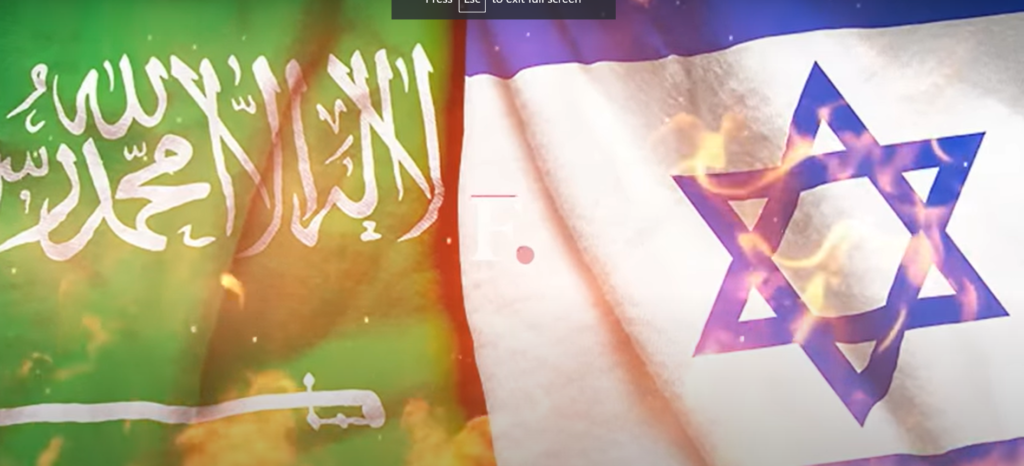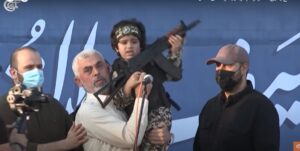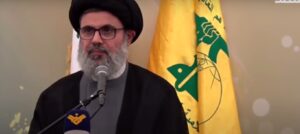Senior political figures in Jerusalem are following with concern the latest developments related to the regional changes that Saudi Arabia has been leading in recent weeks under the leadership of Crown Prince Mohammed bin Salman.
The main concern of the political echelon is the agreement to renew diplomatic ties that Saudi Arabia, the leader of the Sunni world, signed with Iran, the leader of the Shiite world, Saudi Arabia made a 180 degree turn and reconciled with its traditional enemy through the mediation of China.
Not only Israel is worried about this development, the Biden administration is also worried, two weeks ago President Biden sent the head of the CIA William Burns to Saudi Arabia, he met with senior officials in the royal house and in the Saudi intelligence and expressed Washington’s concern about Saudi Arabia’s rapprochement with Iran and its consequences for the situation in the Middle East.
The assessment of the political echelon in Israel is that Saudi Arabia took this step for two main reasons.
- A desire to bring about a quick end to the war in Yemen that has been going on since 2015 until now.
In March 2015, Saudi Crown Prince Mohammed bin Salman established a coalition of Arab and Muslim countries led by Saudi Arabia that attempted to use military attacks to repel the Houthi rebels who are loyal to Iran and return power to the legitimate government.
Yemen is considered the backyard of Saudi Arabia and Mohammed bin Salman saw the Houthis’ takeover of it as an Iranian danger that threatens the kingdom.
Saudi Arabia’s war against the Houthi rebels got complicated and they started attacking cities in Saudi Arabia and its oil facilities with cruise missiles and precision drones, they caused it heavy economic damage and paralyzed a large part of its oil industry in 2019.
- Saudi fears of a significant reduction in American involvement in the Middle East, the US is gradually being pushed out of the region that was an important political and security playground for it and into this vacuum Russia, China and Iran have entered.
As far as Saudi Arabia is concerned, this process endangers the rule of the Saudi royal house and the political, economic and social vision that Mohammed bin Salman has set himself to realize by 2030.
The Saudi crown prince came to the conclusion that the Biden administration would not protect him from Iranian attacks, nor would it likely prevent Iran from arming itself with nuclear weapons in the future, so he decided to switch to the other camp without severing his ties with the West, but with a clear message that he is not looking for a military confrontation with Iran.
In recent days, Saudi Arabia sent a message to the US, Israel and Iran explaining the strategic change decided by the Saudi Crown Prince, the Saudi newspaper Al-Sharq Al-Awast published on April 17 an article written by the journalist Badr Al-Kharif under the title:
“Muhammad bin Salman, the prince of the East, the hope of the nation and the supreme state builder.”
The author of the article was probably briefed by the Saudi crown prince himself and provided an explanation for Saudi Arabia’s decision to sign the agreement with Iran.
The author of the article gave the following explanation:
“By virtue of bin Salman’s being also prime minister, he dealt with the issue of the neighbor (Iran) which for generations was a danger to Saudi Arabia and the Gulf countries and other Arab countries.
He is convinced that a political solution through dialogue is the right solution and he estimates that a country like Iran, which has an ancient history and culture ,one cannot resolve the dispute with it through direct military confrontations.
He is convinced that this solution is a form of recklessness and adventurism since there is no winner in the war.
He emphasized that it is impossible to erase the countries from the map just because of problems that can be solved on the table.
“Bin Salman does not pay attention to the American and Israeli threats to attack Iran and is convinced that this is a form of political blackmail and chatter that has been going on for decades and there are no indications of their credibility today.”
The Israeli message
Israeli intelligence estimates that the agreement between Saudi Arabia and Iran will not last long and may explode in the future.
The assessment says that it is not possible to bridge the religious and ideological differences between the Sunnah, which is represented by Saudi Arabia, and the Shia, which is represented by Iran.
In addition to this, there is no indication that Iran intends to stop the policy of spreading the ideas of the Islamic Revolution from 1979 and Iran’s physical expansion in the Middle East through the establishment of branches on its behalf in Arab countries, it is acting out of interests now and its rapprochement with Saudi Arabia is temporary and its goal is to weaken the US and damage the normalization agreements of Israel with the Gulf countries.
Israel is rightly concerned about these developments that could slow down the Israeli effort to soon achieve a normalization agreement with Saudi Arabia and other Arab and Islamic countries.
Prime Minister Netanyahu placed the target as an important pillar of Israel’s foreign policy, therefore he chose to convey a public message to Saudi Arabia that it might regret its decision regarding Iran.
In an interview with the American CNBC channel, Netanyahu said that “95% of the problems in the Middle East stem from Iran.” According to him, the evidence of the “misery” that Saudi Arabia may experience as a result of getting closer to Iran is Lebanon, Yemen, Syria and Iraq.
“I think that Saudi Arabia and the leadership there have no illusions about the question of who their enemies are, and who their friends are in the Middle East. They understand that Israel is a necessary partner,” said the Prime Minister.
“We would very much like to make peace with Saudi Arabia. This will largely end the Israeli-Arab conflict,” he claimed. Netanyahu also added that “there is no end to the possibilities and the sky is the limit.”
Netanyahu also called for increasing US involvement in the Middle East. “I think not only Israel, but in many ways most countries in the Middle East would welcome nothing more than American involvement in the Middle East, greater involvement,” he said.
“I think it is very important that the US be clear about its commitment and involvement in the Middle East.”
Israel is taking a clear but cautious position regarding Saudi Arabia’s new policy towards Iran, this issue is supposed to be one of the main issues to be discussed at the expected meeting between Prime Minister Netanyahu and President Biden at the White House.
Senior officials in Jerusalem say that the Biden administration must also wake up from the alarming signs that Saudi Arabia is sending out and increase its involvement in the Middle East and, above all, strengthen American deterrence against Iran.



